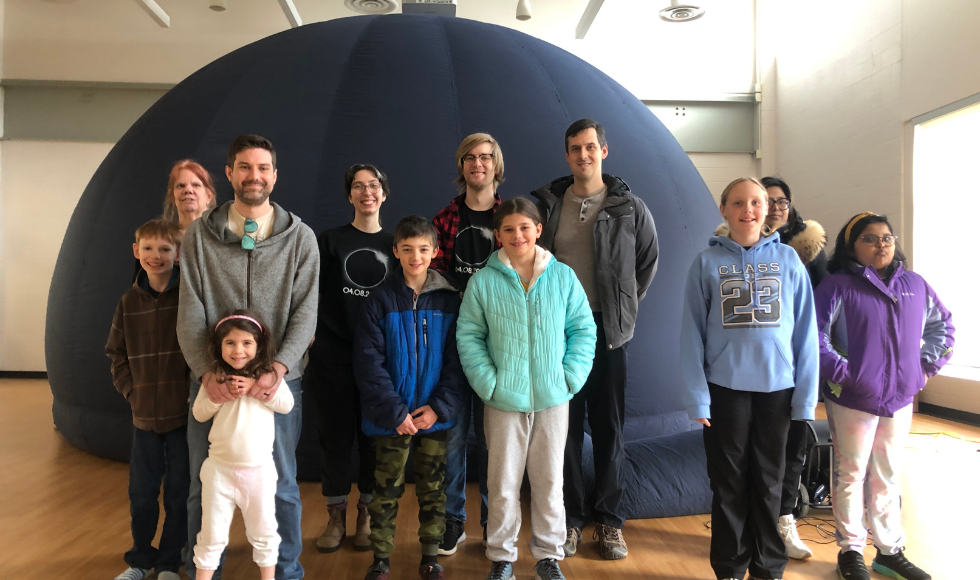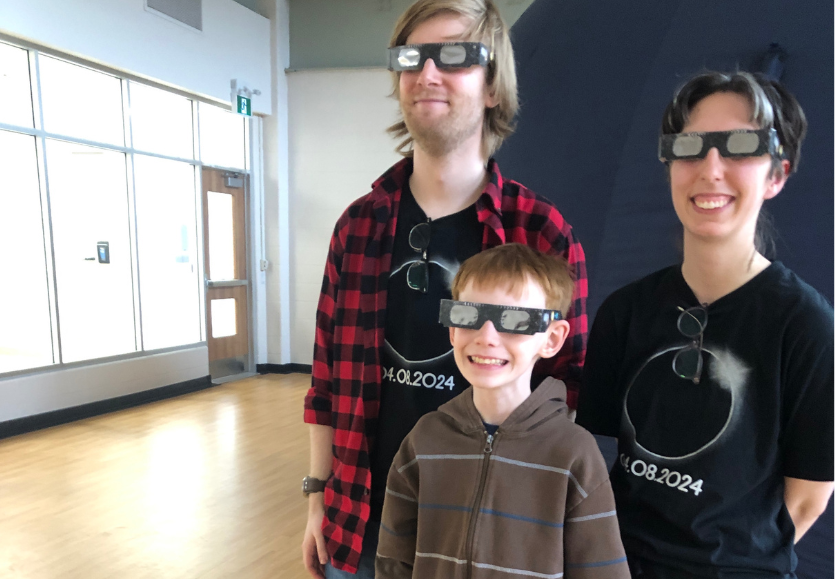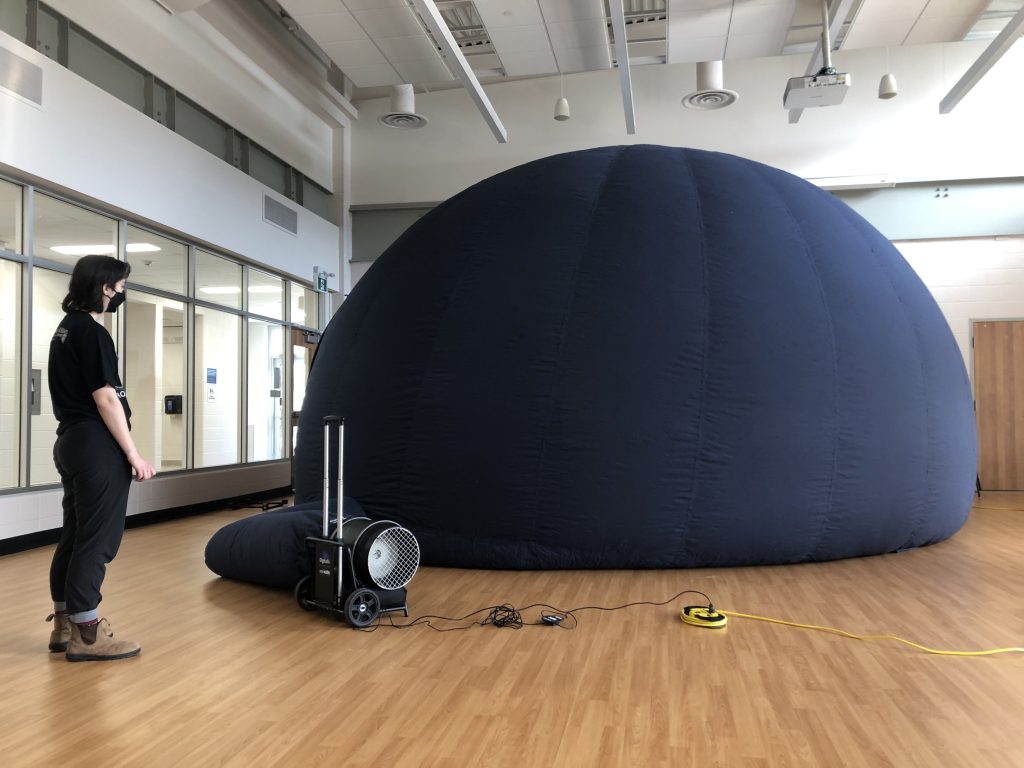McMaster University PhD Students’ Planetarium Roadshow Offers Children a Preview of the Total Eclipse
Veronika Dornan and Hector Robinson brought the sun, moon and Mars into the Greensville library branch Saturday afternoon for four-year-old Ella and dozens of other kids and grown-ups.
The astronomy PhD students set up the Faculty of Science’s portable planetarium and gave a sold-out crowd a free preview of the April 8 total solar eclipse.
Nearly 35 kids and grownups learned about solar and lunar eclipses and saw what eclipses look like from space and on Mars.
No other planets in our solar system experience eclipses like Earth, Dornan said. And no place will be better than Hamilton to see the eclipse next month.

It’s been a whirlwind month for all the Physics & Astronomy graduate students who put their science communication skills to work as planetarium presenters.
Robinson, who ran shows in the W. J. McCallion Planetarium on campus for four years, was coming off back-to-back shows at Burlington schools, with the Royal Botanical Gardens on deck.
It’s great to get out into the community and talk with people who can’t make it to the university, he said.
Dornan and Robinson are happy to give up some of their weekends because it’s a way to share their love of space and science and inspire future astrophysicists.
Kids also ask the best and most hilarious questions, they say. Keeping a straight face can be a challenge.
Black holes top the list of frequently asked questions. “It always comes up,” Robinson said while Swiffering the community centre floor before unbagging the planetarium.
Dornan’s favourite question came from a kid who asked what would happen if she fell into a black hole.
Dornan said she’d be stretched out in a process called spaghettification. (And yes, that’s a real scientific term, first coined by theoretical physicist Stephen Hawking.)
Without missing a beat, the kid asked what would happen if she fell into a black hole while eating a plate of spaghetti.

Nicholas Waller was the first to arrive and last to leave. The planetarium show capped off a March Break spent with his grandmother.
The 11-year-old is a big fan of all things space. He’d already met astronaut Dave Williams at the Canadian War Plane Heritage Museum and got a picture together.
He hung around after the show and added to his collection by getting a photo with Dornan and Robinson.
Nicholas lives outside the path of totality and is hoping he can skip school and spend April 8 with his grandmother, who lives in Hamilton.

Robinson plans to watch the eclipse in an empty field with a group of close friends. He’s only seen partial eclipses, so experiencing a total eclipse will be “super cool.”
Dornan will be volunteering at the McMaster viewing party in the Ron Joyce Stadium. She’s looking to bring some high-powered telescopes with special filters so partygoers can get an unbelievable view of the once-in-a-lifetime celestial event.
She’s already been promised 90 seconds of alone time when the moon completely blocks out the sun. She’ll finally get to experience what she’s been talking about inside the portable planetarium week after week.

